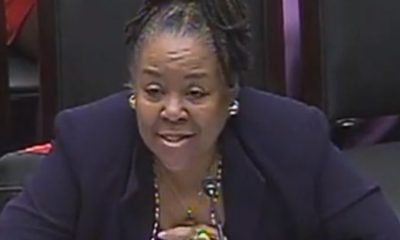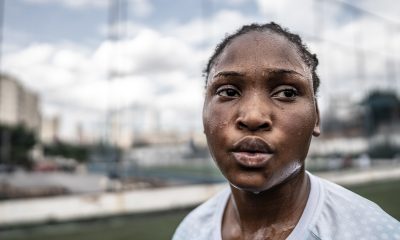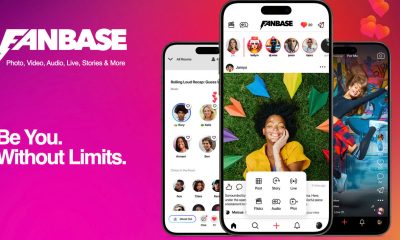Activism
Hunters Point Entrepreneur Yolanda, ‘Londi’ Jones, 60
Jones was the president and CEO of Yolanda’s Construction Administration & Traffic Control (YCAT-C) an African-American and woman-owned business offering a wide range of administrative and traffic control services to support public and private sector clients on engineering-construction projects.
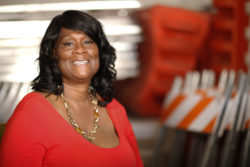
Entrepreneur, community champion and philanthropist Yolanda “Londi” Jones died at her Richmond home on Feb. 18, 2021, a two-year battle with cancer. She was 60.
Jones was the president and CEO of Yolanda’s Construction Administration & Traffic Control (YCAT-C) an African-American and woman-owned business offering a wide range of administrative and traffic control services to support public and private sector clients on engineering-construction projects.
Jones started YCAT-C in 2010 with just $200 and two goals in mind: to create a better way of life for her family and to employ men and women from the Bayview Hunter’s Point community where she grew up. She singled-handedly grew YCAT-C to a multi-million dollar company with 14 full-time employees.
In 2012, YCAT-C was named Small Business of the Year by the San Francisco Small Business Network (SFSBN). And in 2013, she was awarded the Business Leader Award by the National Council of Negro (NCNW) at the Golden Gate Section 30th Year Annual Celebration.
Born in San Francisco on Sept. 7, 1960, Jones went to neighborhood schools and graduated from George Washington High School.
Her entrepreneurial spirit showed early with engagement in several small businesses, including a fish-fry eatery that she started with her father, Charles Walker.
“Londi loved her community. She reached in and pulled out under-served men and women out and employed them, so they could have a better way of life,” said Ginger Jones, her niece.
“She believed everyone deserved a chance, so she gave everyone a chance. I don’t know what life will be like without Londi,” she said.
In 2016, YCAT-C made national headlines after Jones won the #PitchLeBronContest, a competition in which small business owners across the U.S. submitted 23-second videos vying for a highly sought after social media mention from A-list athlete Lebron James, who plays for the Los Angeles Lakers.
Jones masterfully used her 23-second pitch to talk about YCAT-C and their commitment to employing men and women from under-served neighborhoods as a pathway out of crime and poverty.
“Lebron I need your help. I’m an African-American, women-owned flagging business in Bayview Hunters Point San Francisco. We place men and women on construction projects to earn a decent living. Put the guns down, put the dope down, pick up a stop sign and earn a decent living,” Jones said, dressed in a construction vest, hard hat and holding up a stop sign.
James commended Jones for her work on his Facebook page, which had over 23 million followers.
“HUGE s/o to CLE Hustles #PitchLeBron winner Yolanda Jones & YCAT Control!! Loved watching the video. Keep going Yolanda, keep changing lives… your passion is inspiring.” James posted.
He also sent out a Tweet congratulating Jones from his Twitter account, which had 32 million followers at the time.
Jones was always able to leverage any publicity: by 2020, prior to the pandemic, Jones employed 50 people, 80% of whom were formerly incarcerated and Black residents of Bayview Hunters Point.
Jones will be remembered for her fearlessness, generosity of spirit and her love for the community.
She was preceded in death by her son, Leonard Bradley Jr.; brother-in-law, Jacoby Jones Sr., her favorite cousin, Hebret Walker, and her bonus son, Charles Johnson, Sr.
She is survived by her husband Rayshean Jones Sr., mother-in-law, Vickie Jones, her children, Geoffrea Morris (Erik), Meiko-Ann Davis, Lyn-Tise Jones (Jeremy), Raysean Jones Jr. and Rome Jones; her bonus children, Ginger Jones, Jamese Jones, JaQuan Jones, Iyshawn Jones, Rayshanae Jones, and LaDante Johnson; her siblings, Charlette Carnegia (Lester), Ruedell Mendoza (Michael), Lorraine Walker and Charles Walker Jr.,
The Jones family has arranged an all-day public viewing Friday, March 5 at Duggan’s Funeral Services, 3434 17th St., San Francisco, CA 94110. Due to COVID restrictions only groups of 20 or fewer are permitted at a time, so the family has booked multiple viewing slots: 9:00 a.m. to 11:00 a.m. or 12:00 p.m. to 2:00 p.m. or 3:00 p.m. to 5:00 p.m.
Activism
S.F. Black Leaders Rally to Protest, Discuss ‘Epidemic’ of Racial Slurs Against Black Students in SF Public School System
Parents at the meeting spoke of their children as no longer feeling safe in school because of bullying and discrimination. Parents also said that reported incidents such as racial slurs and intimidation are not dealt with to their satisfaction and feel ignored.

By Carla Thomas
San Francisco’s Third Baptist Church hosted a rally and meeting Sunday to discuss hatred toward African American students of the San Francisco Unified School District (SFUSD).
Rev. Amos C. Brown, president of the San Francisco NAACP and pastor of Third Baptist Church, along with leadership from local civil rights groups, the city’s faith-based community and Black community leadership convened at the church.
“There has been an epidemic of racial slurs and mistreatment of Black children in our public schools in the city,” said Brown. “This will not be tolerated.”
According to civil rights advocate Mattie Scott, students from elementary to high school have reported an extraordinary amount of racial slurs directed at them.
“There is a surge of overt racism in the schools, and our children should not be subjected to this,” said Scott. “Students are in school to learn, develop, and grow, not be hated on,” said Scott. “The parents of the children feel they have not received the support necessary to protect their children.”
Attendees were briefed last Friday in a meeting with SFUSD Superintendent Dr. Matt Wayne.
SFUSD states that their policies protect children and they are not at liberty to publicly discuss the issues to protect the children’s privacy.
Parents at the meeting spoke of their children as no longer feeling safe in school because of bullying and discrimination. Parents also said that reported incidents such as racial slurs and intimidation are not dealt with to their satisfaction and feel ignored.
Some parents said they have removed their students from school while other parents and community leaders called on the removal of the SFUSD superintendent, the firing of certain school principals and the need for more supportive school board members.
Community advocates discussed boycotting the schools and creating Freedom Schools led by Black leaders and educators, reassuring parents that their child’s wellbeing and education are the highest priority and youth are not to be disrupted by racism or policies that don’t support them.
Virginia Marshall, chair of the San Francisco NAACP’s education committee, offered encouragement to the parents and students in attendance while also announcing an upcoming May 14 school board meeting to demand accountability over their mistreatment.
“I’m urging anyone that cares about our students to pack the May 14 school board meeting,” said Marshall.
This resource was supported in whole or in part by funding provided by the State of California, administered by the California State Library via California Black Media as part of the Stop the Hate Program. The program is supported by partnership with California Department of Social Services and the California Commission on Asian and Pacific Islander American Affairs as part of the Stop the Hate program. To report a hate incident or hate crime and get support, go to CA vs Hate.
Activism
Oakland Ambassadors Strengthen Ties and Aid Efforts in Ghana
Oakland natives and esteemed members of the African American Sports and Entertainment Group (AASEG), Jonathan P. Jones and Dr. Maritony Efua Jones, recently embarked on a significant journey to Ghana as guests of the World Martial Authority Ghana. This trip signifies a crucial opportunity to bolster partnerships, explore new avenues of collaboration, and contribute to impactful initiatives in Ghana.
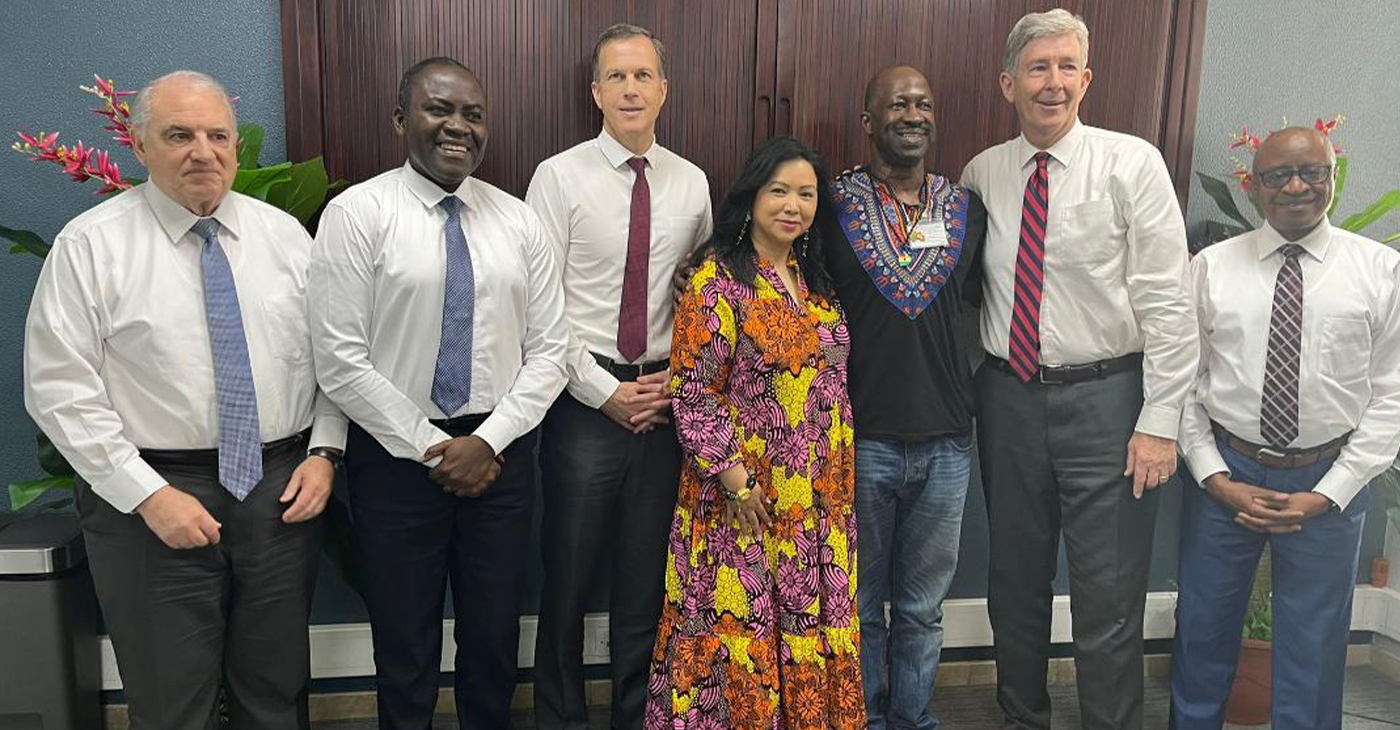
By Post Staff
Oakland natives and esteemed members of the African American Sports and Entertainment Group (AASEG), Jonathan P. Jones and Dr. Maritony Efua Jones, recently embarked on a significant journey to Ghana as guests of the World Martial Authority Ghana.
This trip signifies a crucial opportunity to bolster partnerships, explore new avenues of collaboration, and contribute to impactful initiatives in Ghana.
Upon their arrival at Katota Airport in Accra, Ghana, the Joneses were warmly received by His Royal Majesty Okatakyie Asafo Boakye III, the distinguished king of Sanzule Kingdom in the Eastern Nzema, and Etse Nyamedi of World Martial Authority, Ghana.
Nyamedi accompanied the Joneses to the city of Mepe, which had recently experienced flooding, to assess damages and engage with local leaders, elders, and youth regarding the city’s urgent needs after major floods last fall.
Key concerns and priorities identified by the community include comprehensive flood mitigation measures, agricultural support, housing initiatives, educational enhancements, improved healthcare access, and the development of communal recreational spaces.
The Joneses were also graciously invited to meet with leaders of The Church of Jesus Christ of Latter-day Saints at their headquarters in Accra. This meeting provided insights into ongoing humanitarian efforts in Ghana and explored avenues for collaboration to further assist Ghanaian communities.
The LDS leaders shared their prompt response to the recent flood, demonstrating their commitment to humanitarian aid by dispatching substantial supplies including medical provisions, sanitation items, blankets, and food to assist flood victims just four days after the disaster.
Additionally, Boakye extended a special invitation to the Joneses to his palace, where they were pleasantly surprised with a heartfelt recognition ceremony. Maritony Jones was honored as the Queen Mother of the Sanzule Kingdom in acknowledgment of her dedicated work, while Jonathan Jones was lauded and welcomed as the ambassador of the Sanzule Kingdom, symbolizing a meaningful homecoming to their ancestral land.
The visit not only strengthens ties between Oakland and Ghana but also underscores the collaborative spirit and commitment to meaningful progress and humanitarian endeavors shared by all involved parties.
Activism
Calif. Anti-Sex Trafficking Advocates Discuss Competing Bills, Strategies
Advocates from across California are challenging state officials and community leaders to support legislation that provides resources and services for survivors and victims of human trafficking, as well as assistance as they transition back into civil society. Some of those advocates are also calling for more effective state policy to curtail trafficking, a crime that has an outsized impact on Black children, particularly girls.
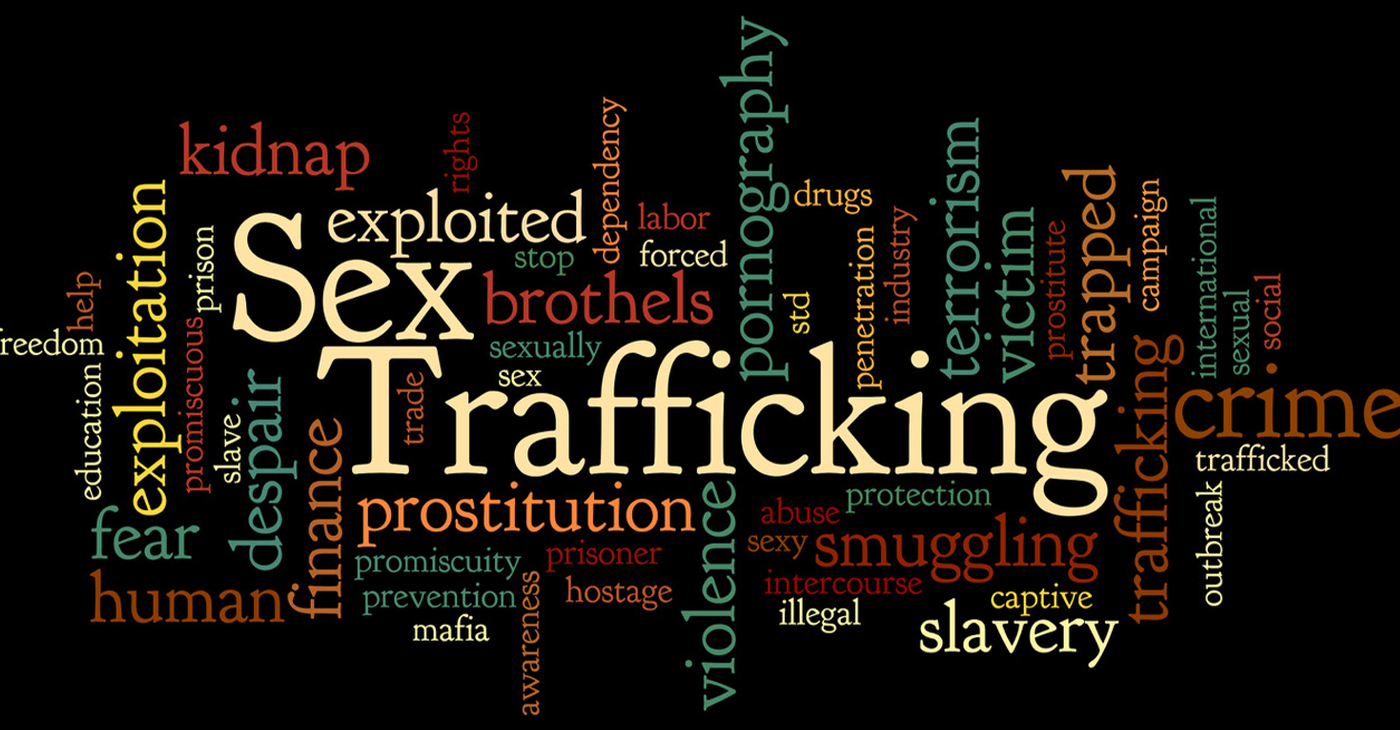
By Bo Tefu, California Black Media
Advocates from across California are challenging state officials and community leaders to support legislation that provides resources and services for survivors and victims of human trafficking, as well as assistance as they transition back into civil society.
Some of those advocates are also calling for more effective state policy to curtail trafficking, a crime that has an outsized impact on Black children, particularly girls.
According to the FBI, a report covering a two-year period found Black children accounted for 57% of all juvenile arrests for prostitution. In addition, 40% of sex trafficking victims were Black and 60% of those victims had been enrolled in the foster care system.
“It is time to hold the perpetrators who take advantage of our children accountable,” said the Rev. Shane Harris, a San Diego-based activist, former foster youth and founder of the Peoples Association of Justice Advocates, (PAJA), a national civil rights organization and policy think tank.
“It is time to send a thorough message that if you seek to buy a child for sex, you will pay the highest criminal penalties in this state,” added Harris who was speaking at a rally at the State Capitol earlier this month. Harris was speaking in support of Senate Bill 1414, authored by Sen. Shannon Grove (D-Bakersfield), which calls for people who buy sex from minors to be punished with a felony. The punishment includes a two-year prison sentence and a $25,000 fine.
Harris said the PAJA is the only civil rights organization in the state that supports SB 1414.
Harris urged other Black-led groups who favor anti-trafficking legislation more focused on criminal justice reforms (as opposed to stiffer penalties), to “join the movement.”
Many of those civil rights groups fear that SB 1414 could lead to the incarceration of more Black youth.
Those sentiments were echoed in a panel discussion organized by Black women advocates on April 26 to examine the cause and effects of human trafficking in California’s Black communities. The virtual event was hosted by the Forgotten Children, Inc, a faith-based nonprofit that advocates for survivors and victims of human trafficking through anti-trafficking campaigns and initiatives.
Panelists shared the psychological impact of sexual exploitation on youth and children in the long term.
Author and educator Dr. Stephany Powell shared statistics and information revealing that African American women and girls are the most trafficked nationwide.
Powell, who serves as the senior advisor on law enforcement and policy at the National Center on Sexual Exploitation said that national data indicates that sex trade survivors are disproportionately women of color. She stated that male survivors often go unnoticed because boys rarely report trafficked crimes.
Powell said that decriminalizing prostitution in California could increase human trafficking. She argued that Senate Bill 357, authored by Sen. Scott Wiener (D-San Francisco), which was signed into law in 2022 and legalized loitering for prostitution, caused a surge in street-level prostitution.
Panelist and psychologist Dr. Gloria Morrow shared opposing views on decriminalizing prostitution. She said that decriminalizing prostitution could help survivors gain access to state resources and support.
Despite opposing views, Powell and Morrow agree that the Black community needs resources and educational programs to address human trafficking.
-

 Community3 weeks ago
Community3 weeks agoFinancial Assistance Bill for Descendants of Enslaved Persons to Help Them Purchase, Own, or Maintain a Home
-

 Business3 weeks ago
Business3 weeks agoV.P. Kamala Harris: Americans With Criminal Records Will Soon Be Eligible for SBA Loans
-

 Activism4 weeks ago
Activism4 weeks agoOakland Post: Week of April 10 – 16, 2024
-

 Community3 weeks ago
Community3 weeks agoAG Bonta Says Oakland School Leaders Should Comply with State Laws to Avoid ‘Disparate Harm’ When Closing or Merging Schools
-

 Activism2 weeks ago
Activism2 weeks agoOakland Post: Week of April 24 – 30, 2024
-

 City Government3 days ago
City Government3 days agoCourt Throws Out Law That Allowed Californians to Build Duplexes, Triplexes and RDUs on Their Properties
-

 Community2 weeks ago
Community2 weeks agoRichmond Nonprofit Helps Ex-Felons Get Back on Their Feet
-

 Community2 weeks ago
Community2 weeks agoOakland WNBA Player to be Inducted Into Hall of Fame



